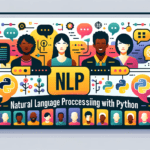Introduction
In the fast-paced world of information technology, efficiency and cost reduction are paramount. Artificial Intelligence (AI) has emerged as a transformative force in IT operations, driving significant improvements in how businesses manage and maintain their IT infrastructure. This blog delves into the impact of AI on IT operations, highlighting its role in enhancing efficiency and reducing operational costs.
The Role of AI in IT Operations
AI in IT operations, often referred to as AIOps, involves using advanced algorithms and machine learning techniques to automate and improve IT operations. AIOps can analyze large volumes of data, predict potential issues, and offer proactive solutions, leading to more efficient and cost-effective operations.
Key Benefits:
- Automated Problem Resolution: AI can automatically detect and resolve many common IT issues, reducing the need for manual intervention.
- Predictive Maintenance: Machine learning models can predict potential system failures, allowing for preventive maintenance and avoiding costly downtime.
- Enhanced Security: AI algorithms can detect and respond to security threats more quickly and effectively than traditional methods.
Implementing AI in IT Operations
1. Data Analysis and Management
AI systems excel in handling and analyzing vast amounts of data generated by IT operations. They can identify patterns, anomalies, and trends that are not easily noticeable by human operators.
2. Automated Responses and Solutions
By utilizing AI, IT operations can automatically respond to system alerts, reducing response times and the potential for human error.
3. Continuous Learning and Improvement
AI systems continually learn from new data, enabling them to adapt and improve their responses and solutions over time.
Real-World Applications
- Automated Ticketing Systems: AI-powered ticketing systems can categorize, prioritize, and even resolve IT issues without human intervention.
- Resource Optimization: AI algorithms can optimize the allocation of resources, ensuring maximum efficiency and reducing costs.
- Network Management: AI tools can monitor network performance, predict bottlenecks, and optimize traffic flow.
Challenges and Considerations
While AI offers numerous benefits, there are challenges to consider:
- Integration with Existing Systems: Integrating AI into existing IT infrastructure can be complex and time-consuming.
- Data Privacy and Security: Managing the vast amounts of data used by AI tools while ensuring privacy and security is crucial.
- Skill Gap: There is a need for skilled professionals who can manage and interpret AI systems effectively.
Conclusion
The integration of AI in IT operations signifies a revolutionary shift in the management of technology infrastructures. By automating routine tasks, predicting issues before they occur, and optimizing resources, AI not only boosts efficiency but also significantly reduces operational costs. As technology continues to evolve, the role of AI in IT operations will become increasingly integral, offering exciting possibilities for businesses seeking to stay competitive and agile in the digital era.
Further Learning
- Training and Certification: Pursuing AI and machine learning certifications can provide IT professionals with the skills needed to manage AI-driven systems.
- Workshops and Seminars: Participating in industry workshops and seminars can offer insights into the latest AI trends and best practices.
- Collaboration with AI Experts: Partnering with AI experts and consultants can aid in effectively implementing and managing AI in IT operations.
Embracing AI in IT operations is no longer a futuristic concept but a current reality. For businesses and IT professionals alike, understanding and leveraging the power of AI is key to achieving greater operational efficiency and cost-effectiveness.




